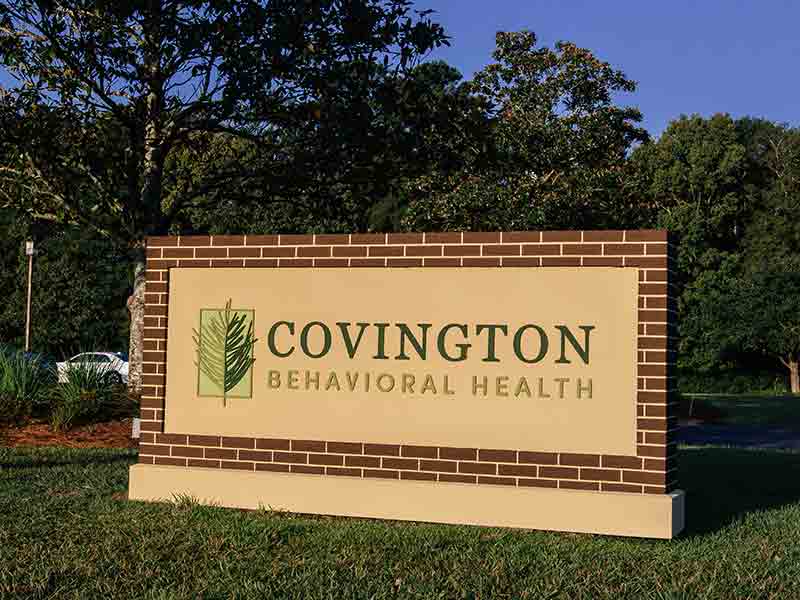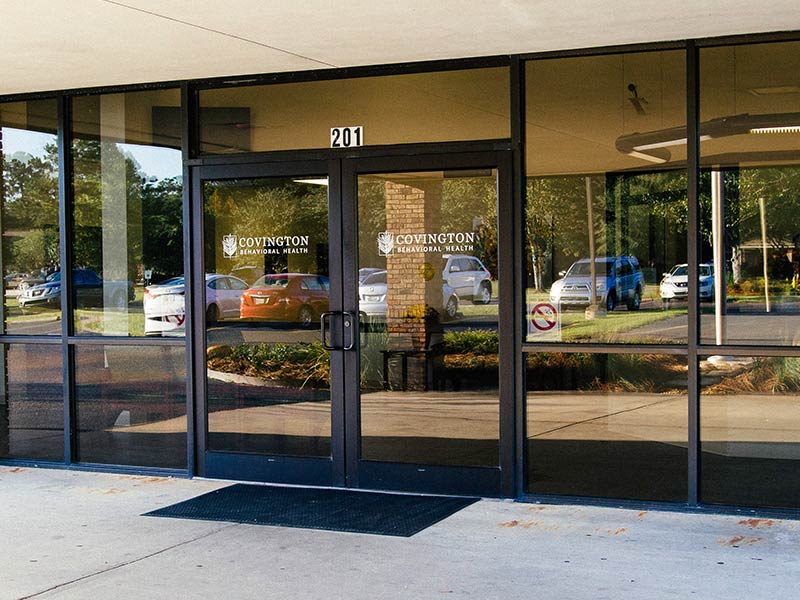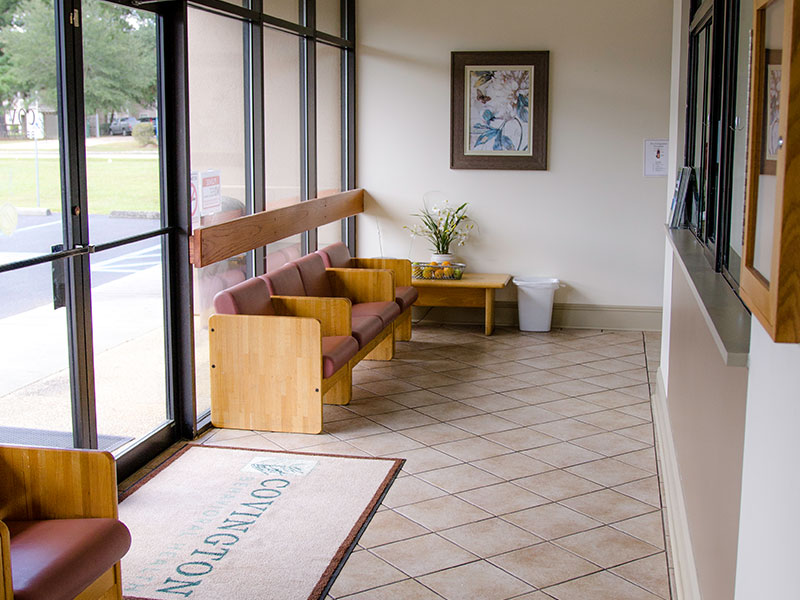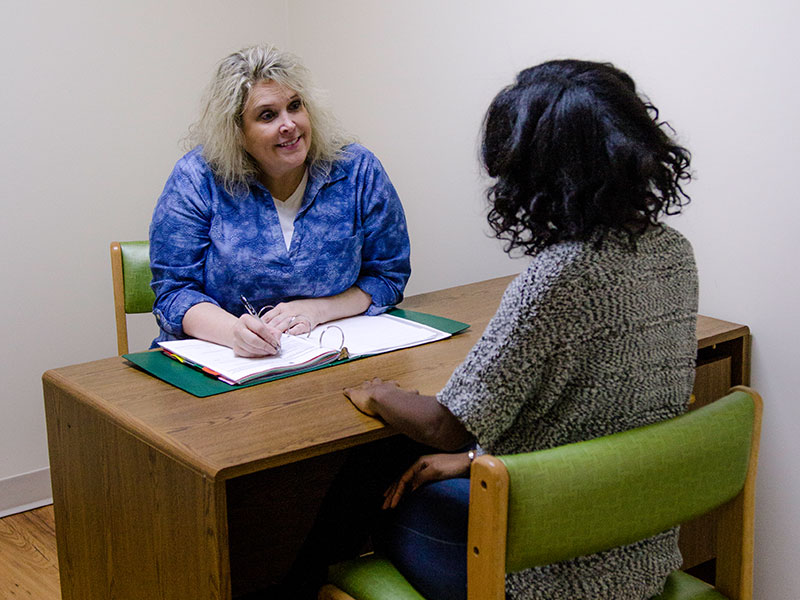At Covington Behavioral Health, individuals can receive expert care delivered by a team of compassionate and experienced professionals. With the help of our center’s dedicated treatment team, it is possible to learn to manage bipolar disorder symptoms and live a healthier, happier life.
Bipolar Disorder Treatment
Learn more about bipolar disorder treatment at Covington Behavioral Health in St. Tammany Parish
Bipolar I disorder is a distressing and disruptive mental health disorder that is characterized by manic episodes, which are defined as distinct periods of persistently and abnormally elevated mood and increased energy, lasting for most of every day for at least one week. Symptoms of manic episodes among individuals who have bipolar I disorder may include inflated self-esteem, grandiose thoughts or expressions, decreased need for sleep, racing thoughts, and excessive involvement in activities such as spending sprees that have a significant potential for negative consequences.
Individuals who suffer from bipolar I disorder may also experience episodes of hypomania and major depression, though these experiences are not required for a diagnosis of bipolar I disorder. These individuals may have difficulty making academic progress, getting and keeping a job, maintaining healthy interpersonal relationships, and otherwise participating in a productive and satisfying life.
Though bipolar I disorder can have a devastating effect on the content and quality of an individual’s life, the symptoms of this mental health disorder do respond to treatment at a hospital or center for bipolar disorder. At Covington Behavioral Health, we have developed specialized programming that has helped adolescent and adult patients at our center achieve stability and experience relief from the more distressing symptoms of bipolar I disorder.
How to Help a Loved One
Helping a loved one get treatment for bipolar disorder
If someone you care about has been exhibiting symptoms of bipolar I disorder, then you already know how confusing and frustrating this experience can be. What you may not realize is that you can play an important role in getting your loved one the professional help that he or she needs. Please consider the following:
Talk to your loved one. Yes, he or she may have difficulties adequately expressing what he or she has been experiencing, but it is essential that you acknowledge your loved one’s struggles and provide him or her with the opportunity to play an active role in getting help at a hospital or center for bipolar disorder.
Next, educate yourself about your loved one’s symptoms. Websites of reputable mental health organizations can be invaluable resources. If you can, speak with your family physician about the problem or contact a mental health support agency. Empathy and knowledge can significantly improve your ability to provide meaningful support.
Learn about the types of treatment that have benefitted others who have experienced similar symptoms, and identify programs that provide this type of care. Get in touch with the centers or hospitals that appear to be best prepared to meet your loved one’s needs. If possible, arrange to visit the center or hospital, meet with representatives, and tour the facility.
Continue to remain in active communication with your loved one. Share the information that you have gathered and keep him or her involved in the process to the greatest degree that is possible and practical.
When the time comes to make decisions about treatment, volunteer to provide the support that your loved one needs. Schedule appointments, provide transportation, arrange for childcare, and accompany your loved one. Never forget that this experience can be a frightening one for your loved one. Remain a source of compassion and support through it all.
Why Consider Treatment
Why consider treatment for bipolar disorder at Covington Behavioral Health in St. Tammany Parish
Untreated bipolar I disorder can have a profoundly negative impact on both the content and quality of an individual’s life. Dramatic mood swings and changes in energy level can undermine an individual’s efforts to make consistent progress in school and perform to expectation at work. People who do not get treatment at a hospital or center to address the symptoms of bipolar I disorder may find it difficult or impossible to get and keep a job, to establish and maintain healthy interpersonal relationships, to achieve financial stability, and to live a healthy independent life. Untreated bipolar I disorder can lead to family discord, academic failure, job loss, chronic unemployment, and financial distress. Individuals who do not get proper professional treatment for bipolar I disorder may attempt to self-medicate with alcohol or other drugs, a self-defeating behavior that can expose them to myriad forms of physical and psychological damage.
However, with the effective comprehensive care that is available at Covington Behavioral Health, adolescents and adults can get the help they need to manage their symptoms and regain their ability to live productive and satisfying lives.
Types of Treatment
Types of bipolar disorder treatment offered at Covington Behavioral Health in St. Tammany Parish
Covington Behavioral Health is a 104-bed residential treatment center that provides personalized, comprehensive care for adolescents ages 10-17 and adults age 18 and older who have experienced acute changes in their emotional and mental well-being and need psychiatric stabilization.
At Covington Behavioral Health, care for people who have been diagnosed with bipolar I disorder is provided by multidisciplinary teams of talented and dedicated professionals, including psychiatrists, medical psychologists, nurses, nurse practitioners, social workers, counselors, activity therapists, and mental health technicians. Among the members of our center’s staff who have specialized training are our full-time staff dietitian, social workers who are certified in gerontology, and physicians certified in forensic psychiatry and addictionology.
The care that our patients receive at our hospital incorporates a variety of treatment techniques and therapeutic modalities, including cognitive behavioral therapy (CBT) and dialectical behavior therapy (DBT). We place a premium on conducting thorough assessments on each patient to ensure that we are able to develop individualized treatment plans that address each person’s specific strengths, needs, and treatment goals.
Each patient’s time at Covington Behavioral Health will be a unique experience based upon his or her specific strengths and needs. Depending upon those unique factors, a patient’s treatment at our center may include the following elements:
Medication management: Some individuals with bipolar I disorder may benefit from having certain prescription medications incorporated into their treatment plans. Covington patients who meet this description will have the opportunity to meet with our psychiatrist and nursing staff on a regular basis while engaged at our hospital to receive medication management services.
Detoxification: Covington Behavioral Health is not a substance abuse treatment center; however, we do understand that prospective patients may have struggled with substance abuse in addition to their challenges with bipolar I disorder. To best serve these individuals, we provide detox services for individuals who been abusing alcohol, prescription painkillers, and certain other drugs. After they have rid their bodies of the substances that they have been abusing, detox patients will transfer directly into our center’s residential treatment to receive care for their mental health disorders.
Individual therapy: Patients have the opportunity to meet with a member of our social service staff (LCSW, LMSW, LPC, or PLPC) or nursing staff (R.N. or LPN) for an individual therapy session every day during their time in treatment for bipolar I disorder. Additional individual therapy sessions may be scheduled based upon patient need. Individual therapy allows patients at our hospital to address issues that they may be hesitant to bring up during group sessions, provides them with one-on-one feedback and guidance from experienced professionals, and helps them to develop effective skills for managing the symptoms of bipolar I disorder.
Group therapy: Group therapy sessions are fundamental elements of treatment at Covington Behavioral Health. Group therapy provides a structured yet dynamic environment in which participants can share their insights and experiences, learn from the contributions of fellow patients, and practice healthy interpersonal skills such as effective communication, empathy, and giving and receiving support. The following are among the groups that a patient who is being treated for bipolar I disorder may participate in during his or her time at Covington:
- Activity groups
- Creative therapy groups
- Dietary groups
- Process groups
- Psychoeducation groups
Group therapy sessions, which are typically offered at least five times during each treatment day, are led by our center’s nurses, activity therapists, mental health technicians, and members of our social services staff.
Family therapy: At Covington Behavioral Health, we understand that an individual’s struggles with bipolar I disorder may impact his or her entire family. With family therapy, loved ones of Covington patients have the opportunity to address how they have been affected by the patient’s mental health problems, learn how to strengthen family bonds and improve intra-familial relationships, and develop the skills that will allow them to provide the best possible support as their loved one continues in recovery following the residential phase of his or her treatment. Family therapy sessions at Covington Behavioral Health are typically conducted by the patient’s case manager and may be scheduled on an as-needed basis or by request.
Discharge planning: We provide robust discharge planning services to ensure that each patient and his or her family has a thorough plan that identifies the referrals, community-based services, and other support services that will put the patient in the best position to maintain and improve upon the progress that he or she made while in treatment at our center for bipolar I disorder with us.
At Covington Behavioral Health, our ultimate goal is to provide the focused, effective, and personalized care that can improve the quality of life for all who are entrusted into our care. For more information about our services, please do not hesitate to contact us at your convenience. We look forward to answering all of your questions and helping you determine if Covington Behavioral Health is the perfect place for you or your loved one.















